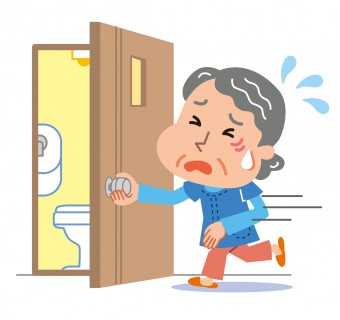Managing Urinary Incontinence

Urinary incontinence is defined as unintentional leakage of urine in an adult. In the case for seniors, it is a serious implication and requires comprehensive and holistic approach to tackle it. Managing incontinence is critical for seniors to maintain their independence and overall emotional, psychological and social life. While many statistics worldwide have proven that seniors have the highest rates of incontinence, it is still a treatable condition.
Why Does Incontinence Happen?
As we age, our sphincter muscles responsible for regulating flow of urine in and around the bladder tend to weaken which causes urine to leak out involuntarily. While this is the general consensus, incontinence in fact can also stem from everyday habits, underlying medical conditions such as endocrine disorders (e.g,, heart failure, uncontrolled diabetes) or physical problems like arthritis and weakened pelvic floor muscles. Some medicines have side effects that affect your bladder. Regardless, a thorough evaluation by a doctor can help determine what’s behind the incontinence and solve the issue.
Types of incontinence
Urinary incontinence usually falls under five identifiable categories.
- Stress incontinence. Urine leaks when you exert pressure, specifically on the intra-abdominal region. This may happen whenever you are coughing, sneezing, laughing, or even exercising.
- Urge incontinence. You have a severe urge to urinate, accompanied by urine loss that is involuntary or may need to urinate regularly more than often, regardless of the time in the day. Common infections like a flu or cold, to more severe diseases like or diabetes and cancer, usually cause this.
- Overflow incontinence. You experience frequent or constant dribbling of urine due to a bladder that doesn’t empty completely. This is usually due to sphincter muscles around the bladder working erratically.
- Functional incontinence. This type of incontinence refers to older individuals who suffer from urinary leakage due to problems with mobility, cognition or other illnesses, and causes an inability to act upon usual indicators of urination, if not incapacitate entirely. This may be prevalent around those suffering from dementia or Alzheimer’s.
- Mixed incontinence. You experience more than one type of urinary incontinence. Most cases show a mix between the stress and urge types.
Prevention
Urinary incontinence may be an issue for seniors, but there are some steps that can be taken to reduce the risk of letting it overrule their lives.
- Lifestyle changes may help with incontinence. Losing weight, quitting smoking, drinking less caffeine and alcohol, following a healthy diet may help with incontinence.
- Pelvic muscle exercises work the muscles that you use to stop urinating. Making these muscles stronger helps you hold urine in your bladder longer.
- Bladder training exercises can help you control your bladder. Two popular methods are timed voiding and delayed urination. In timed voiding, you urinate on a set schedule. Delayed urination trains the bladder to urinate a specific number of times each day, optimally at 3 to 4 times, although results may vary depending on the individual.
Diagnosis and Treatment
For extreme cases that require medical attention, a doctor and/or urologist will usually run a physical exam, a urinalysis with some blood tests, and depending on the severity of the problem will usually prescribe: –
- Medicines to improve bladder function, tighten bladder muscles or close the bladder opening after urination.
- Surgery can improve or cure incontinence by adjusting pelvic urethral support, or even place an artificial sphincter for the bladder.
- Electric stimulation, which is a where mild electric current is sent to the nerves around the bladder that help control urination. Although this is usually for extreme cases when physical therapy, lifestyle changes, and medicines haven’t worked.
Conclusion
Urinary incontinence in seniors arises from a combination of physical, cognitive and functional dysfunction as they age, which increases their dependency and care needs. However, with a proper assessment and a helpful approach to assisting them in managing this issue, one can expect their quality of life to improve.
Links
https://www.healthline.com/health/urinary-incontinence#prevention

Leave a Reply
Want to join the discussion?Feel free to contribute!